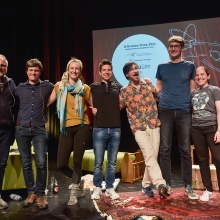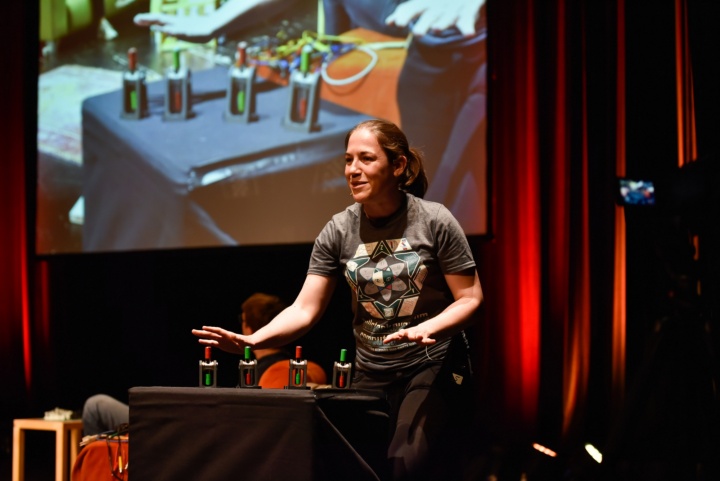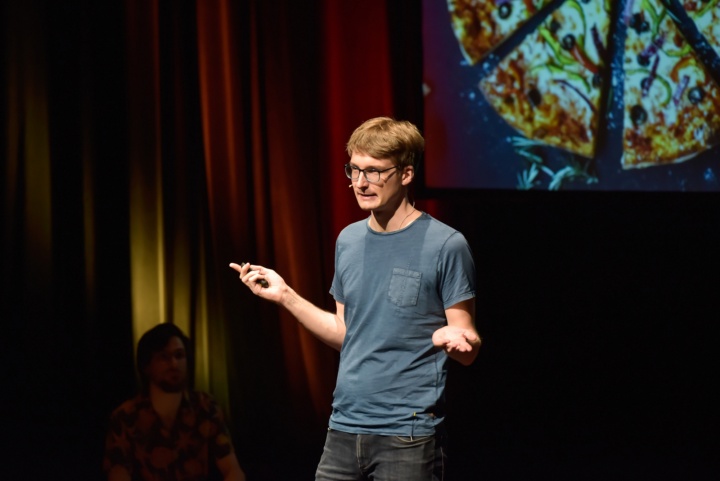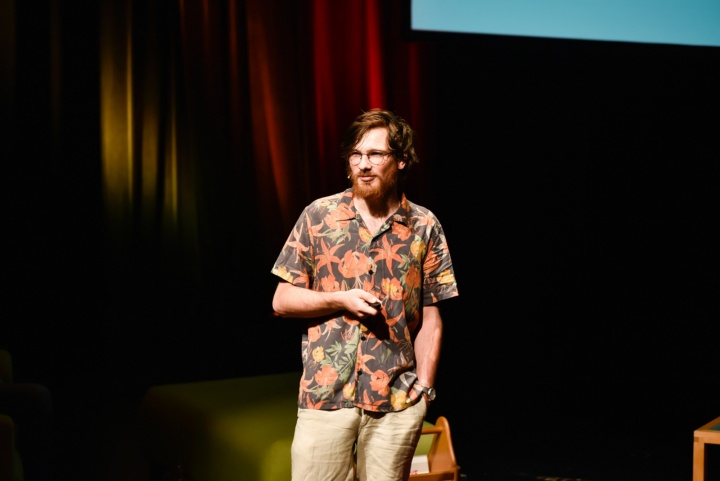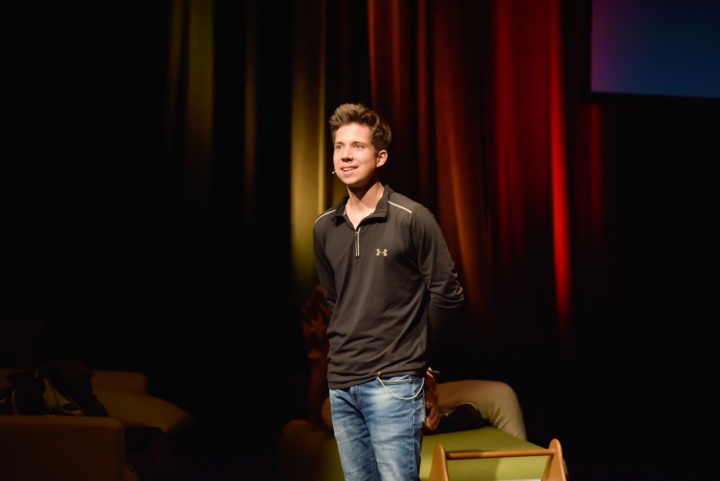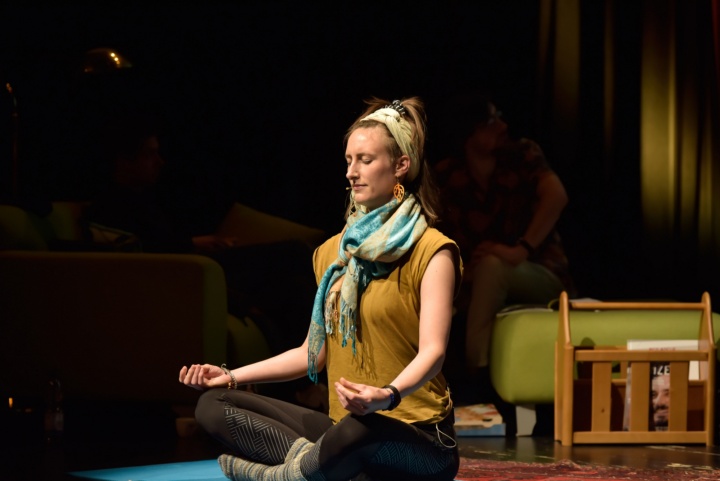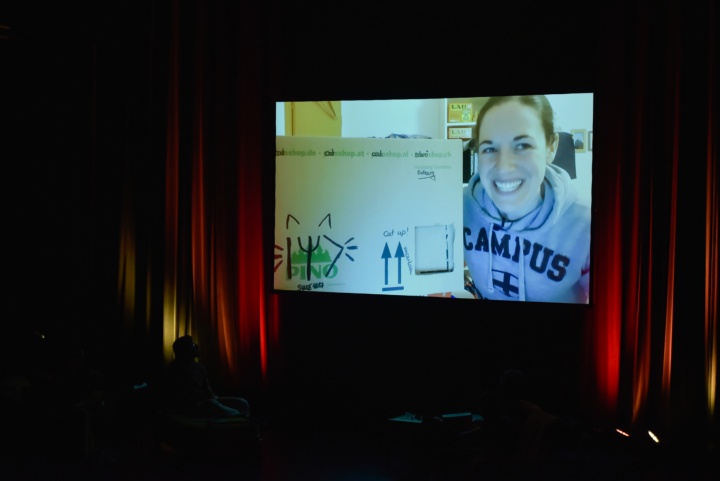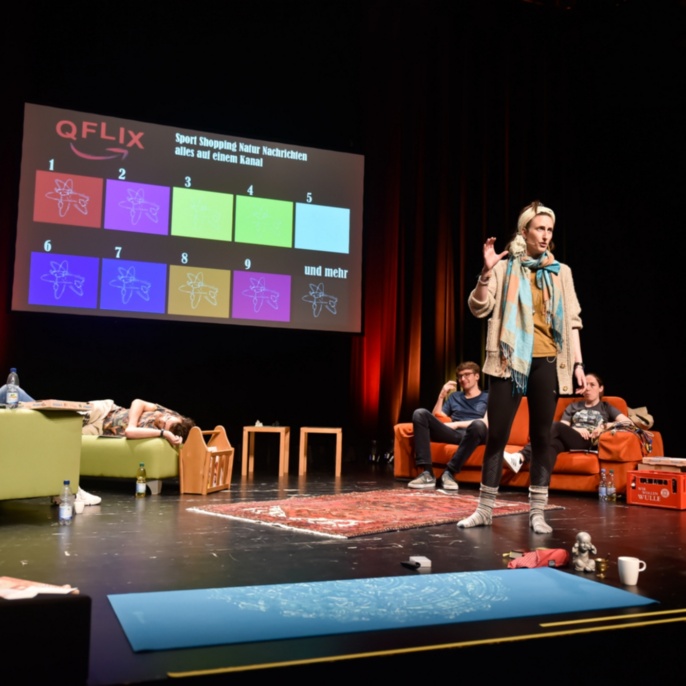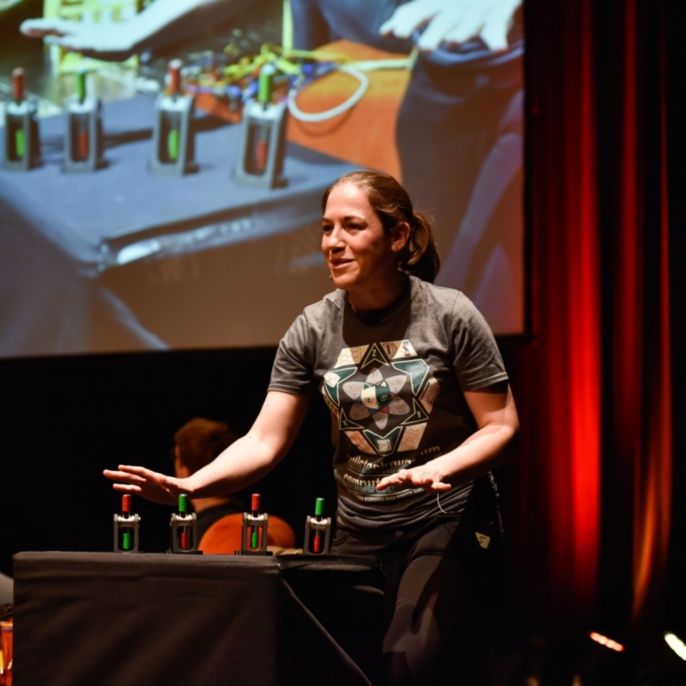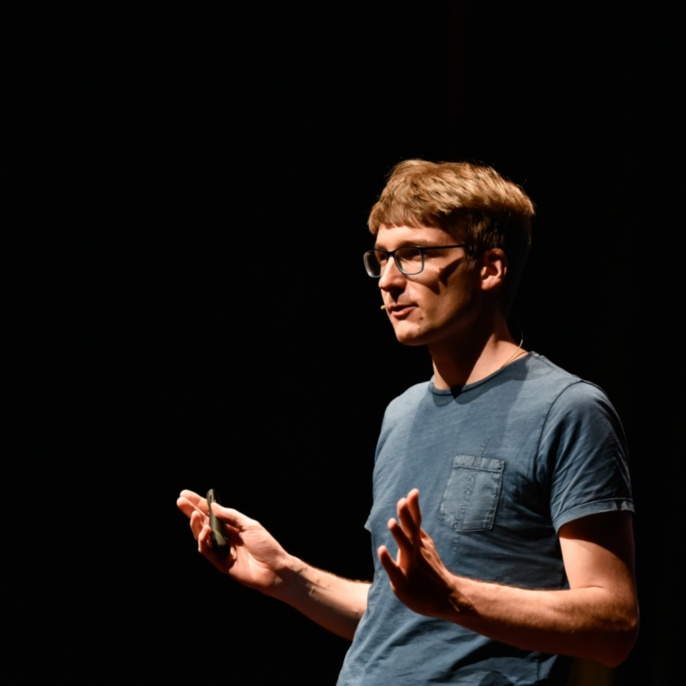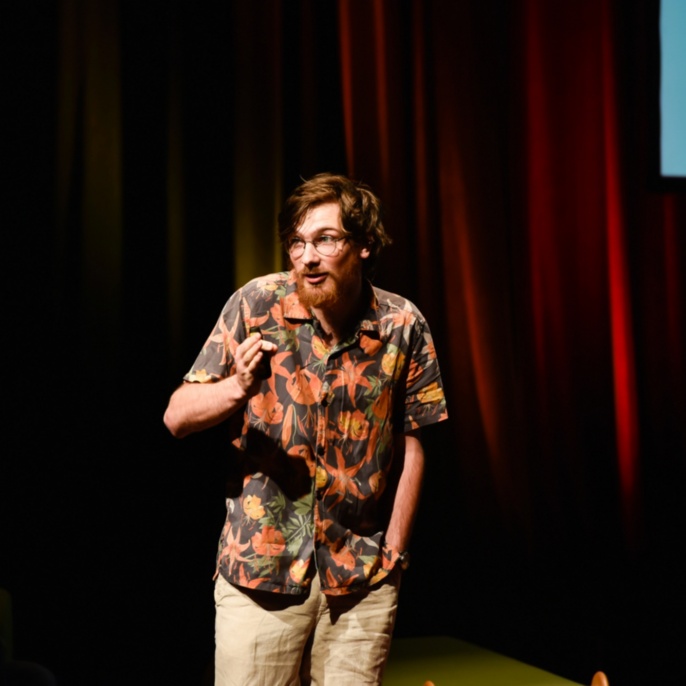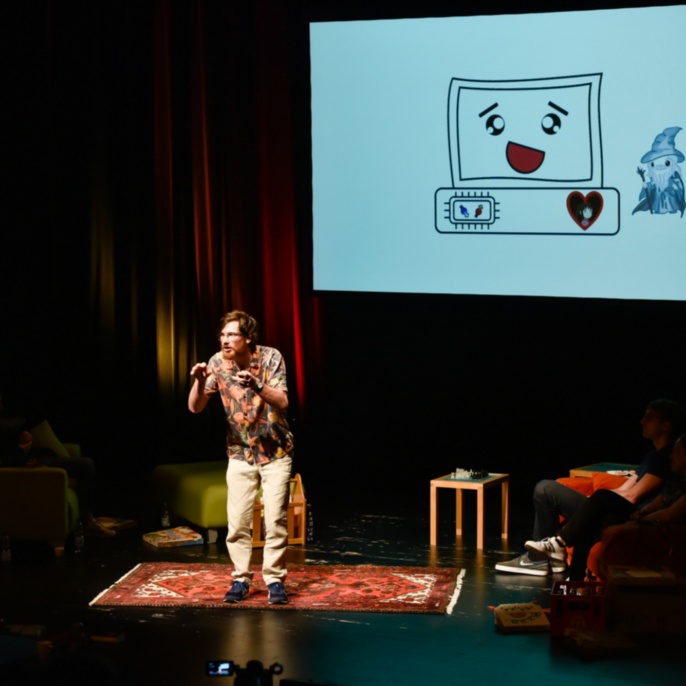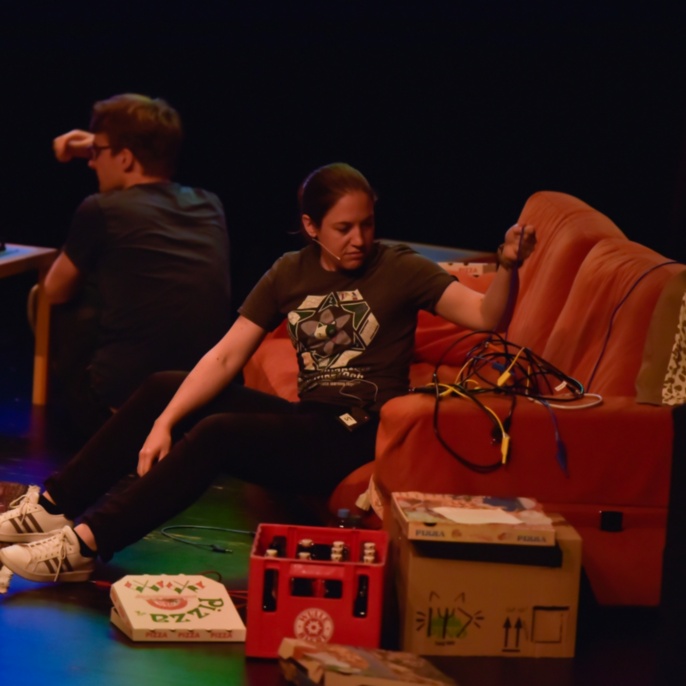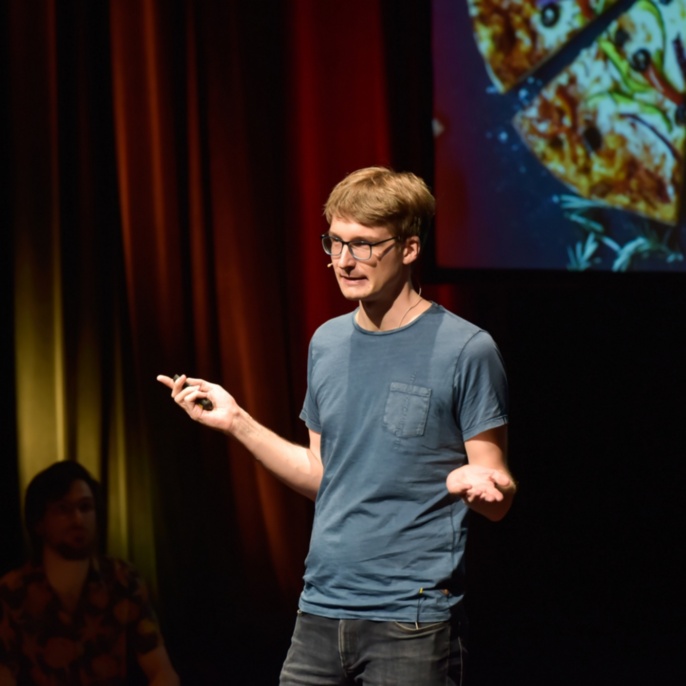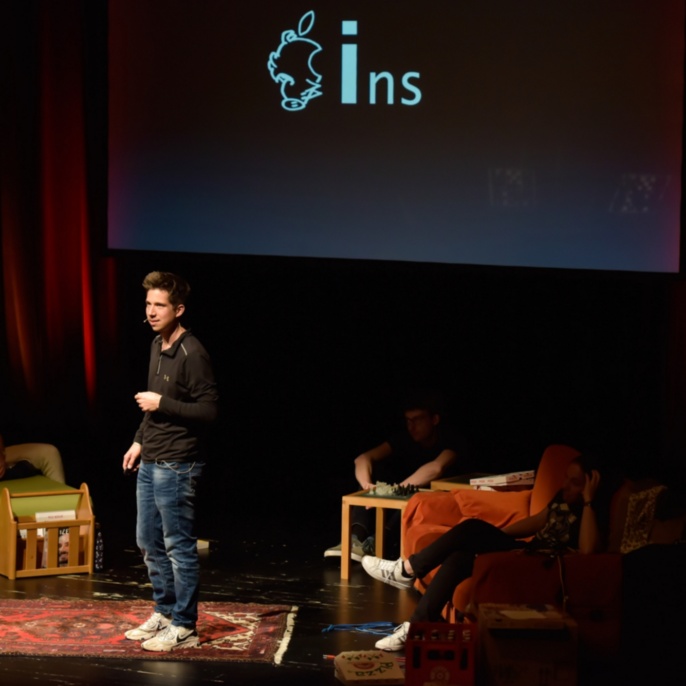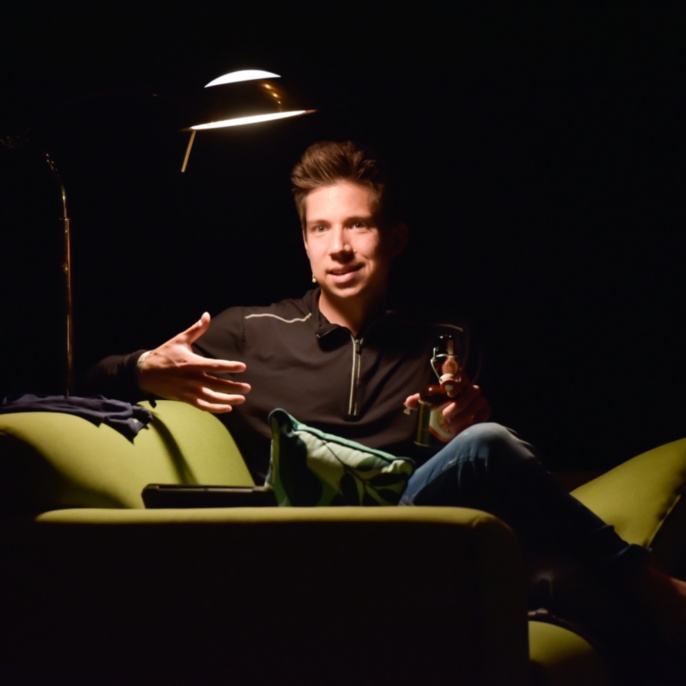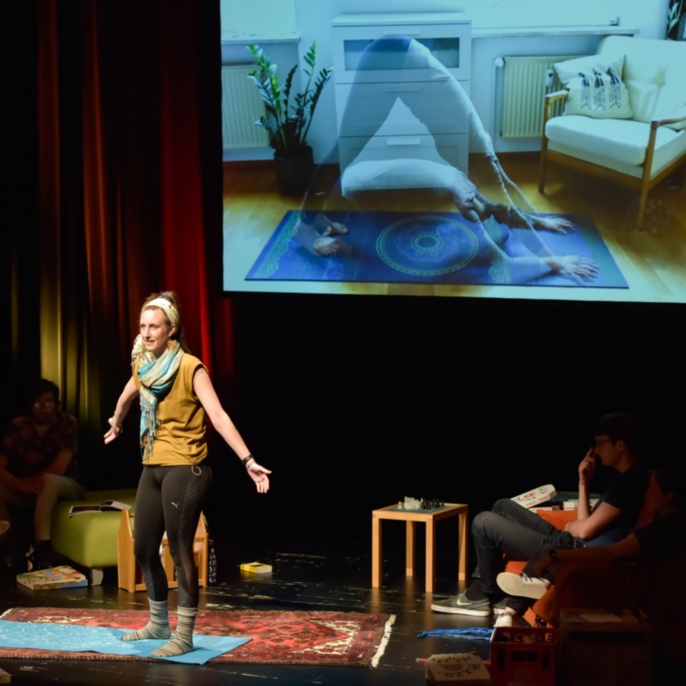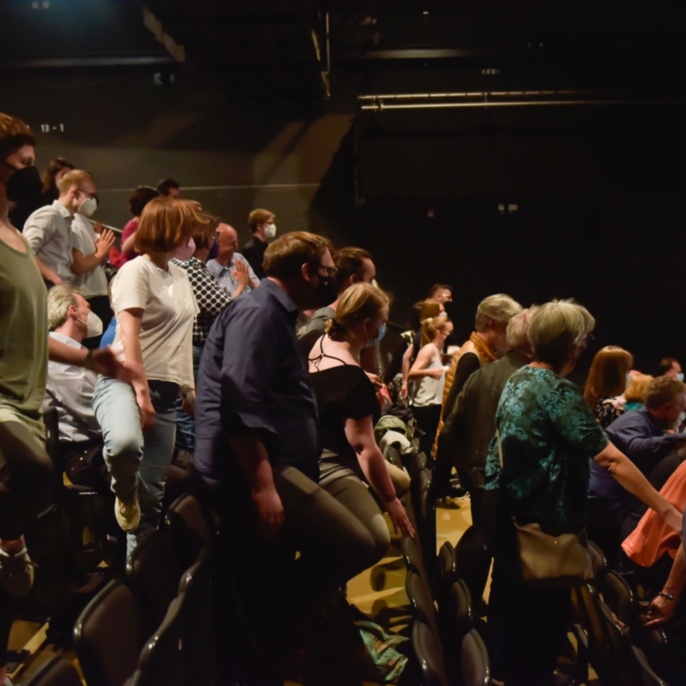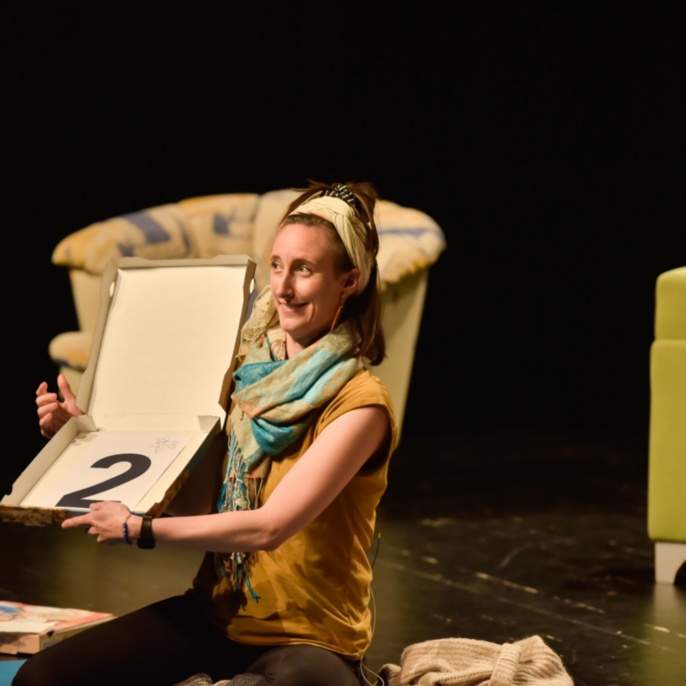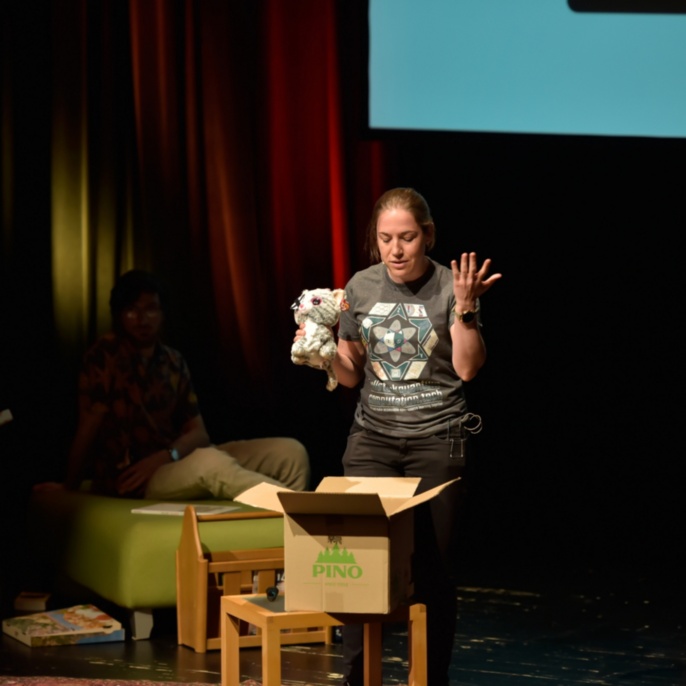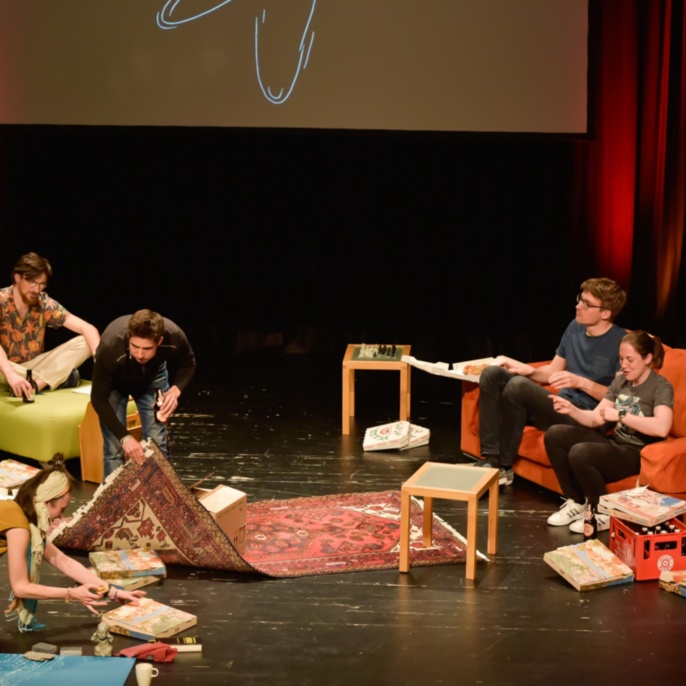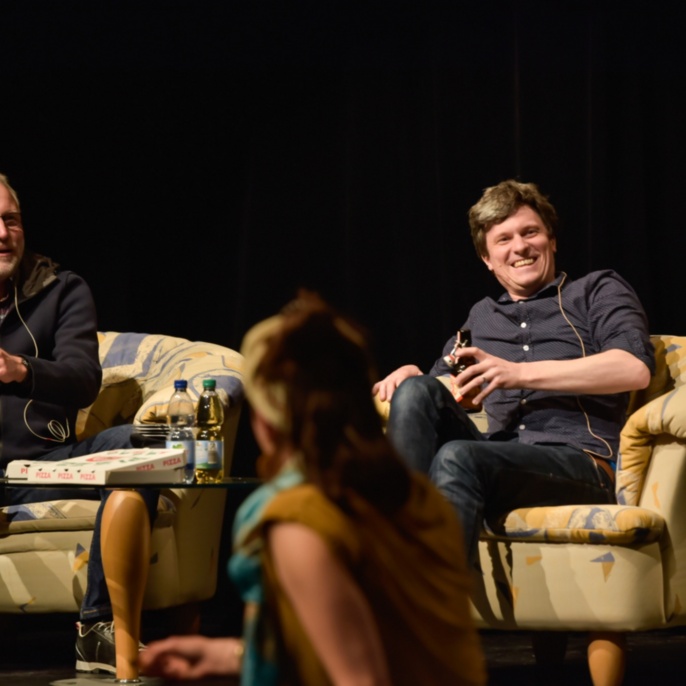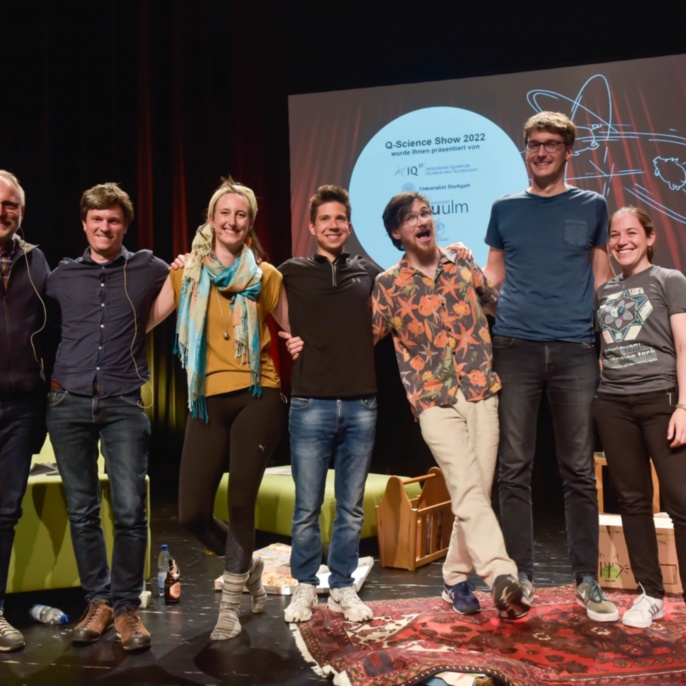What films do quantum physicists watch on a flat-sharing film evening? The audience in the Theaterhaus Stuttgart was live on the WG sofa on Monday evening and, with a dose of quantum randomness, provided a motley programme of films.
The WG's favourite channel, QFLIX, showed sports, shopping, nature and news throughout the evening and offered enlightening and enjoyable films about quantum computing.
First we zap to Käthe's trend make-up tips. She tries in vain to explain the principle with the help of her eye make-up. Her flatmate Kathrin König, a PhD student at the Fraunhofer Institute in Freiburg, steps in and demonstrates entanglement with a magnet experiment. One, two, three and four bar magnets are magically "entangled" with each other and, in principle, a quantum computer with four entangled quantum bits is ready.
We continue with sport. We find out what error correction for quantum computers has to do with curling. Kathrin König gives some advice to all newcomers to the sport. Error correction for quantum computers seems to be a difficult, or at least sporty, matter.
After so much excitement on the ice, it's time for the news. Spokesman Julian Maisch gives us all kinds of headlines. All trains worldwide on time. The weather for the next 30 years. Is it true? Flatmate and quantum physicist Julian, a PhD student at the University of Stuttgart, sorts out the fakes and the facts for us. His conclusion: even in the quantum computer age of the future, a cat in the railway bed can really mess up the timetable. Calculating what the weather will be like on 9 May 30 years from now will remain unsolvable for a quantum computer in the future.
Cat films always go down well. French animal filmmaker Charles Babin, a recent graduate in quantum physics from Stuttgart, takes us into the unknown realm of free-living cats and quats in the wild front gardens and flats of Stuttgart. The quantum cat has a clear advantage when it comes to foraging. While its close relative from the macroscopic world has to check out all the food sources one by one, the "quatze" checks them all at once. Just like a quantum computer.
A simple recipe for quantum computers is promised by Richard Feynman alias Julian Maisch, doctoral student and quantum physicist at the University of Stuttgart, and he goes on the hunt for customers for his latest e-book "In five steps to a quantum computer". Unfortunately, on closer inspection and sober analysis by Julian Maisch, everything is not so simple after all. Because each of the five ingredients that sound so simple, such as a scalable system of qubits, initialisation of the qubits, long coherence times, quantum gates and readout via measurement, involves years of tinkering by generations of quantum scientists in laboratories around the world.
The film evening continues with a special kind of product presentation by Tim Strobel, a PhD student at the University of Stuttgart. He promotes the "i-ns" [aɪ̯ns], a quantum computer for your pocket. But the device turns out to be very expensive, not very smart, difficult to use and only capable of solving one kind of problem. It is not quite the right thing for the bargain hunter yet.
Lisa Ringena, a quantum physicist and science communicator at the University of Heidelberg, relaxes with an energising quantum yoga session. The experienced yogi can easily move from the ground state to the excited state. She is at a loss when it comes to the superposition position, i.e. staying in the ground state and the excited state at the same time. The audience learns that it helps not to look, because the superposition is destroyed during the measurement.
As Kathrin unpacks the box, the audience learns how quantum coincidence decides whether Schrödinger's cat lives or dies. However, Kathrin's enthusiasm for the expensive unsharpness box wanes considerably after the 100th unpacking. In the end, 50 dead cats and 50 living cats are unpacked.
In the last film of the evening, quantum physicist Lisa succumbs to the advertising promises on Tine's teleshopping channel. As an expert, she knows that the quantum computer to be ordered on stock is still a long way off. But whether the offer is dubious or not, she finally gives in to temptation and orders the upgrade model based on Rydberg atoms - in blue. The price? Priceless, actually.
In the end, two potential flatmates applied to join the quantum flatsharing community: Tilman Pfau (Institute Director and co-founder of IQST) and Florian Meinert (Junior Research Group Leader), both from the 5th Institute of Physics at the University of Stuttgart, took the aptitude test and answered the questions about the quantum computer from the audience. The aptitude test was passed, was the unanimous opinion of the house mates. No wonder, since two proven experts in the field of quantum computing were sitting in the living room. In their laboratories, they are currently working on a quantum computer demonstrator using trapped Rydberg atoms.
To prepare for the Q-Science Show, the young scientists could apply for a place at the IQST Science Communication Workshop. The Berlin scriptwriter and dramaturge Oliver Schmaering and the Leipzig voice coach Mona Deibele provided the slammers with the right tools for a successful slam in two workshops and individual training sessions. Tilman Pfau is convinced that "the exercises in self-dramatisation, rhetoric and dramaturgy are the best preparation for students and scientists who often have to present in front of an audience". The Q-Science Show 2022 marks the fifth round of the series.A continuation is planned.
The Q-Science Show was hosted by the Center for Integrated Quantum Science and Technology IQST with support from the Carl-Zeiss-Stiftung.


